TUESDAY EDITORIAL
South Africa’s spiralling social crisis – ‘act now or watch the powder keg explode’

This week the Maverick Citizen editorial focuses on three issues that suggest South Africa is a country increasingly out of control, with a government that has turned its back on the poor and most vulnerable, unable to protect them from hunger or violence. Fortunately, in each instance, civil society organisations work tirelessly to try to defend decency, dignity and rights. But it’s getting more and more difficult every day.
Murder most foul
Today marks the first anniversary of the shooting of Babita Deokaran. We honour her and regret it has taken a year for Gauteng premier David Makhura to institute an independent investigation into her murder.
In this context, Maverick Citizen’s editorial last week lamented that the assasination of political opponents did not stop at the end of apartheid. South Africa has become an “assassination nation”, we wrote.
But little did we know as we penned those words, that assassins were planning the murder of yet another leader of the shack dwellers’ movement, Abahlali baseMjondolo.
On Saturday morning, Lindokhule Mnguni was gunned down in his home in the eKhenana settlement in Durban. He was 28 years old. The mother of his child was also shot and is in hospital. He is the third Abahlali leader to be killed this year and the 24th overall.
Lindokhule was killed because he too was fighting all that’s wrong in South Africa: the economic and social disenfranchisement of poor people, who are expected not to complain, but to prostrate themselves before criminal warlords, who wear ANC colours, in the same way Inkatha warlords like Thomas Mandla Tshabalala used to murder all dissent in the 1980s and 1990s in KwaZulu-Natal.
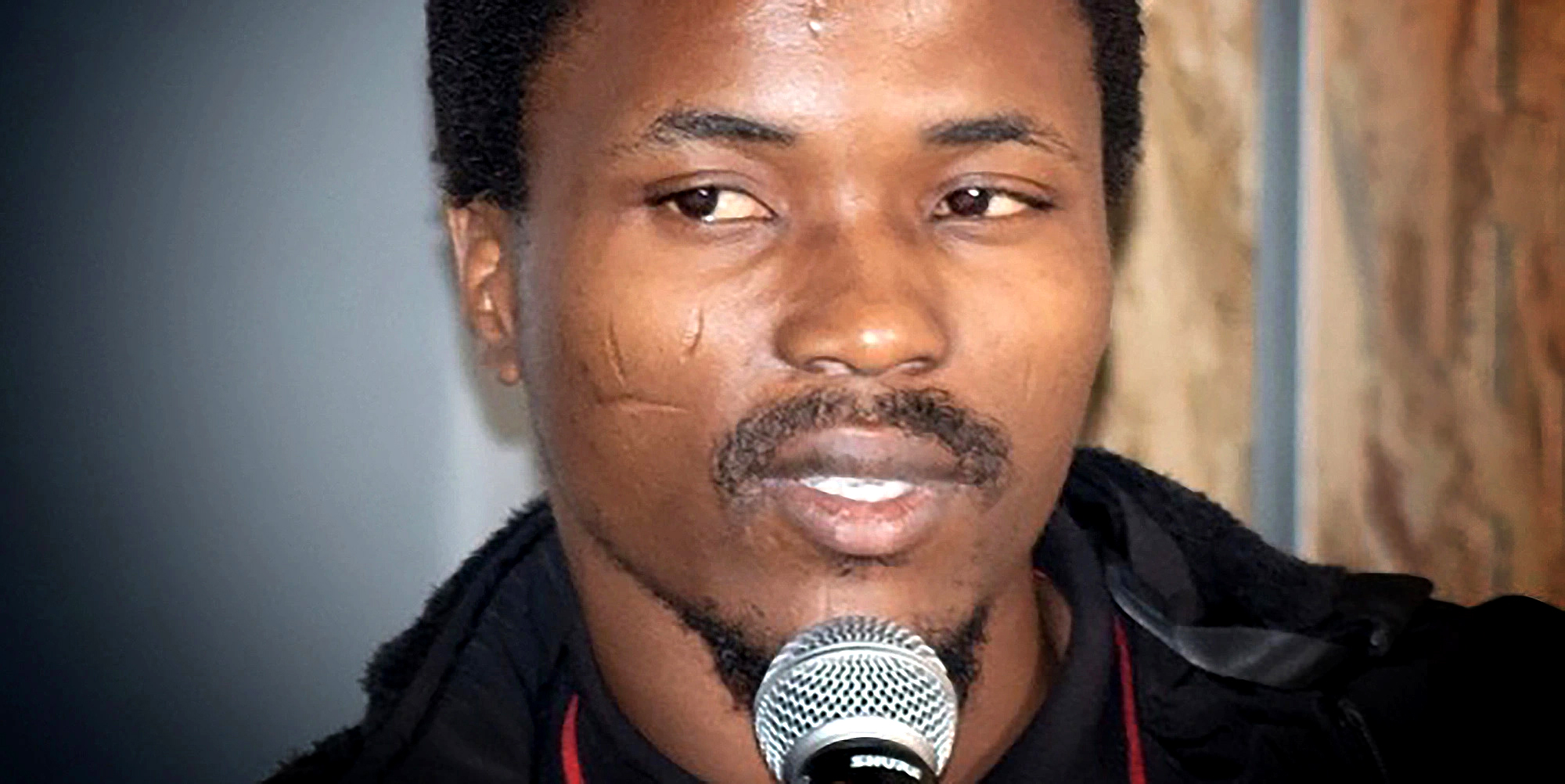
Lindokhule Mnguni, the Abahlali baseMjondolo chairperson of the eKhenana settlement in Durban, was killed because he too was fighting all that’s wrong in South Africa. (Photo: Abahlali baseMjondolo)
Indeed, there is a connection. The warlords changed their party regalia, but not their spots.
The descent of KwaZulu-Natal should be a warning to the rest of South Africa about what happens when the Radical Economic Transformation (RET) faction of the ANC takes over; and when the rights of the poor are left unattended. Rule of law is dispensed with and replaced with rule of gun.
As Thapelo Mohapi, the general secretary of Abahlali, explains in this video, in KZN activists “have no hope and no trust in the justice system in South Africa, particularly the police who have shown no urgency in tackling the murders that have taken place in eKhenana”.
Civil society needs to show solidarity with Abahlali (see below), but also to demand an independent investigation into the 24 killings and the reasons that underlie them.
But the problem goes deeper.
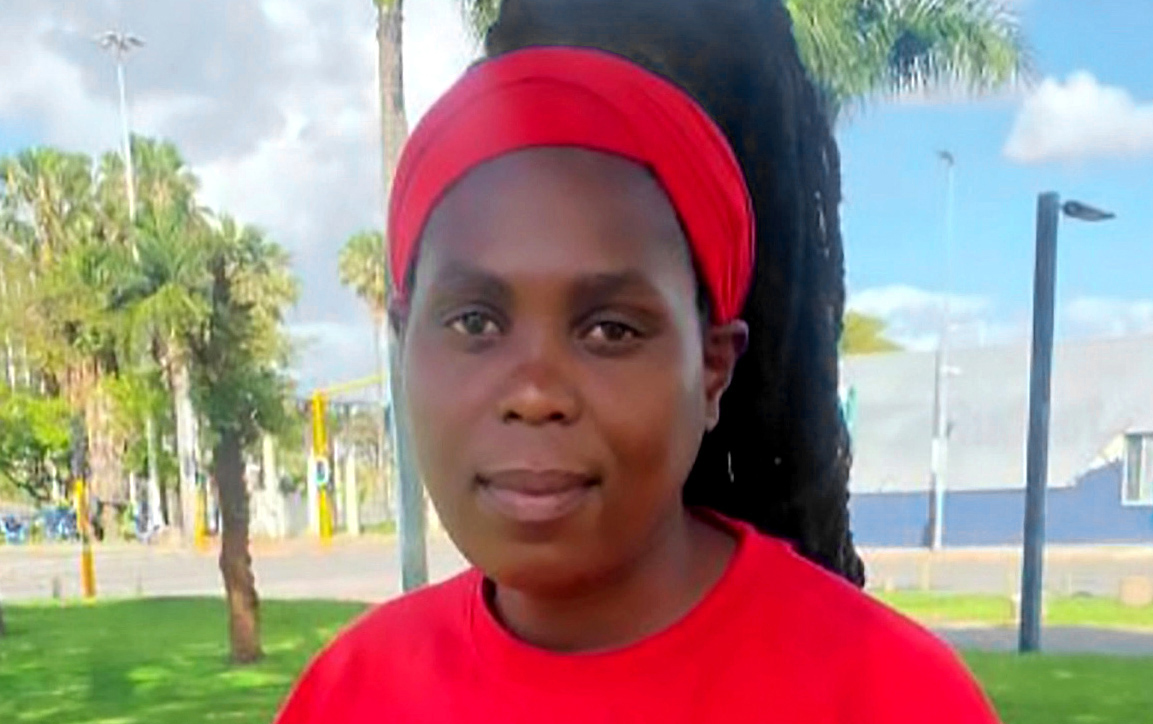
Abahlali baseMjondolo leader Nokuthula Mabaso was shot dead in front of her children at her home in the eKhenana settlement in Durban. (Photo: GroundUp)
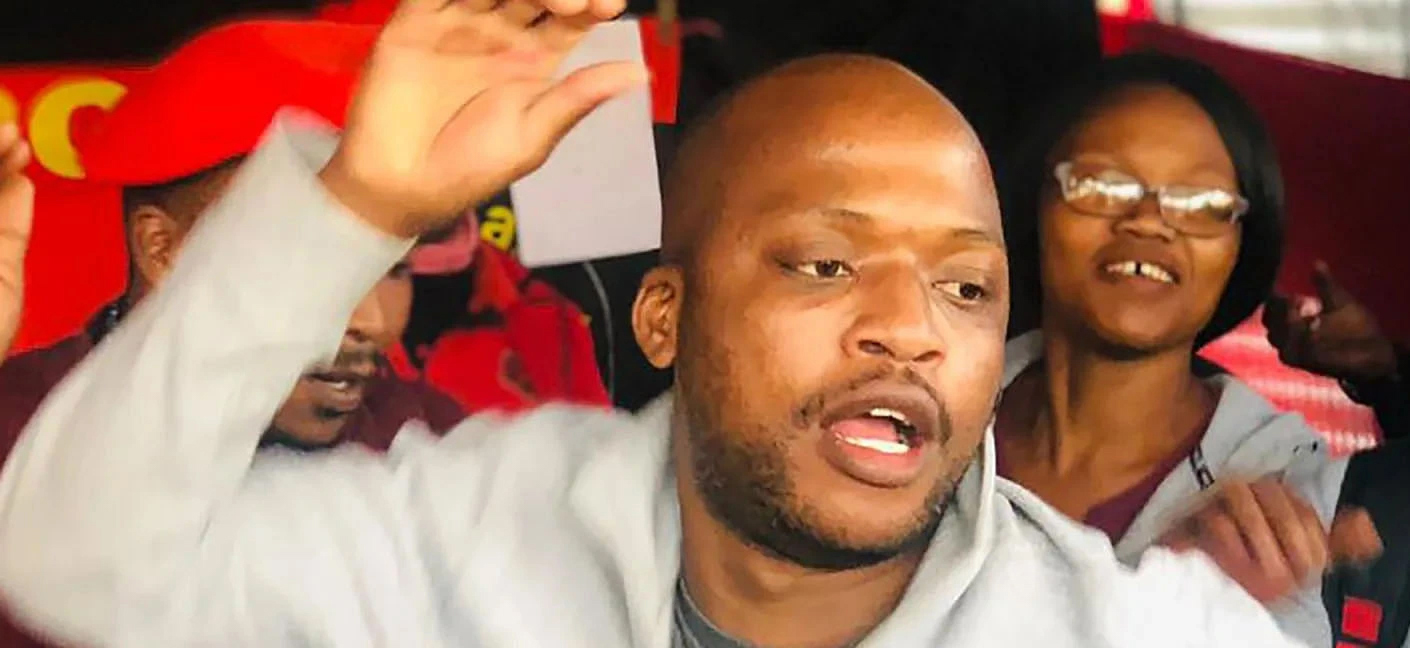
Abahlali baseMjondolo leader Ayanda Ngila was killed while he was fixing water pipes in a food garden in the eKhenana settlement. (Photo: Supplied)
A constitutional South Africa cannot allow its second-most populous province (of 12 million people) to be held ransom by political thugs, suppressing freedom of political activity and expression. This is even more so in the run-up to the vital 2024 elections, where the ANC’s electoral control of the province will be threatened.
As veteran violence monitor Mary de Haas has pointed out repeatedly, it is democracy itself that is under threat in KZN.
This is an issue civil society and bodies like the South African Human Rights Commission have to start to take extremely seriously.
What’s the plan?
Shame on South Africa
For the past few months the war drums of Operation Dudula and several political parties, notably ActionSA and the Patriotic Front, have constantly threatened to ignite a new outbreak of violent xenophobia, targeting mainly black people from other countries across Africa.
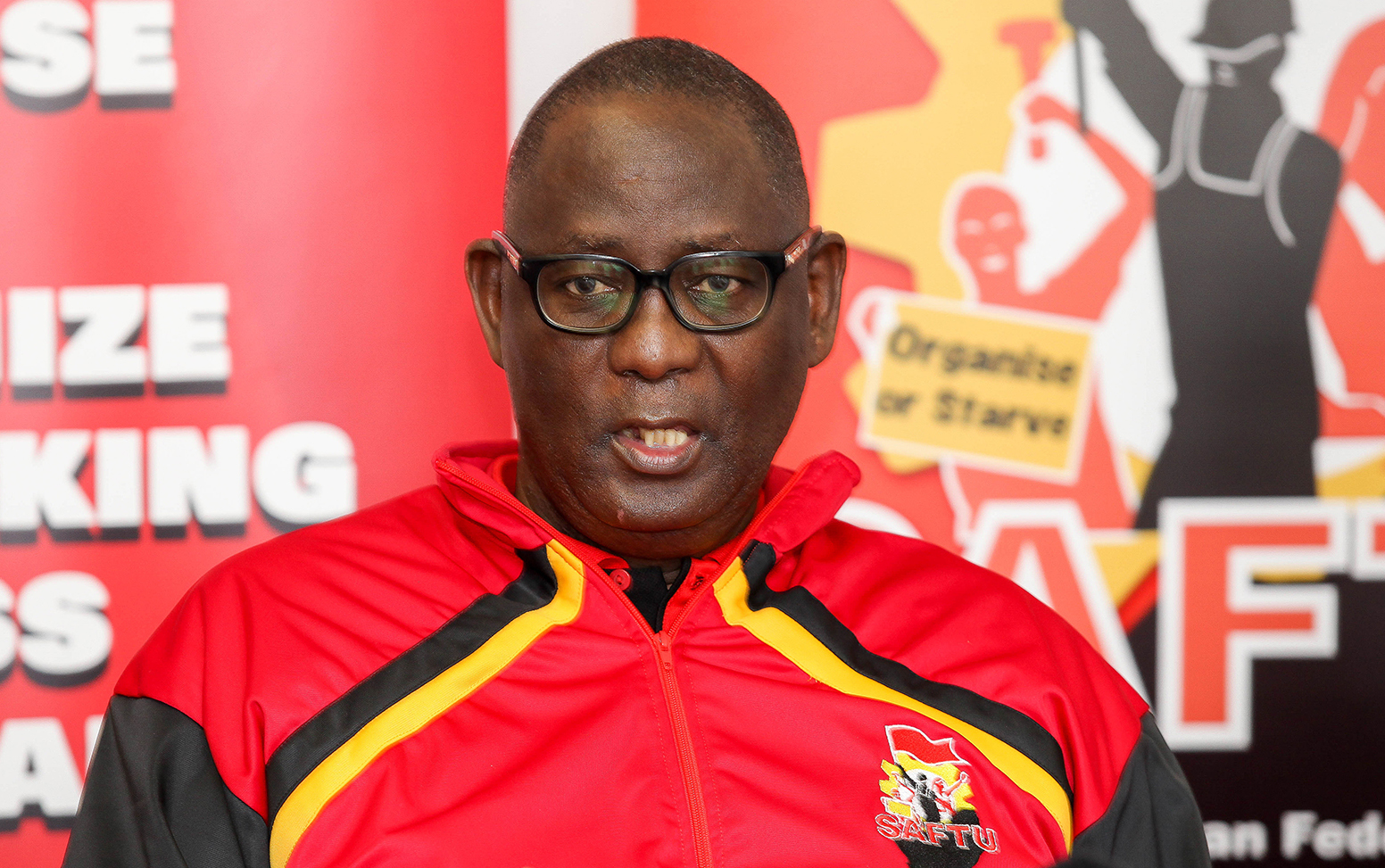
Saftu general secretary Zwelinzima Vavi cited as evidence of the combustibility of South Africa the growing youth suicide rate and the fact that ‘we cannot even protect girls from rape and violence when they are at school‘. (Photo: Gallo Images / Papi Morake)
Fortunately we have not yet seen violence on the scale of the xenophobia of 2008 or 2015, but there has been a string of individual murders, arson attacks and intimidation. An atmosphere of constant threat has been created.
The tragedy, as Daily Maverick exposed yesterday in our story about an inner-city building in Johannesburg, is that a climate of fear and anxiety has been created among migrant communities. As a result many are now choosing to return home and face the threats of hunger and war in their countries of origin.
We should be ashamed of ourselves.
Africa will hold us to account.
But instead of the government trying to build an environment of tolerance and diversity, instead of distancing itself from these threats, instead of contradicting fake news that links the social crisis to migrants, ministers like Aaron Motsoaledi and Bheki Cele have shamefully fuelled it.
This has even been raised as a concern by human rights experts within the United Nations.
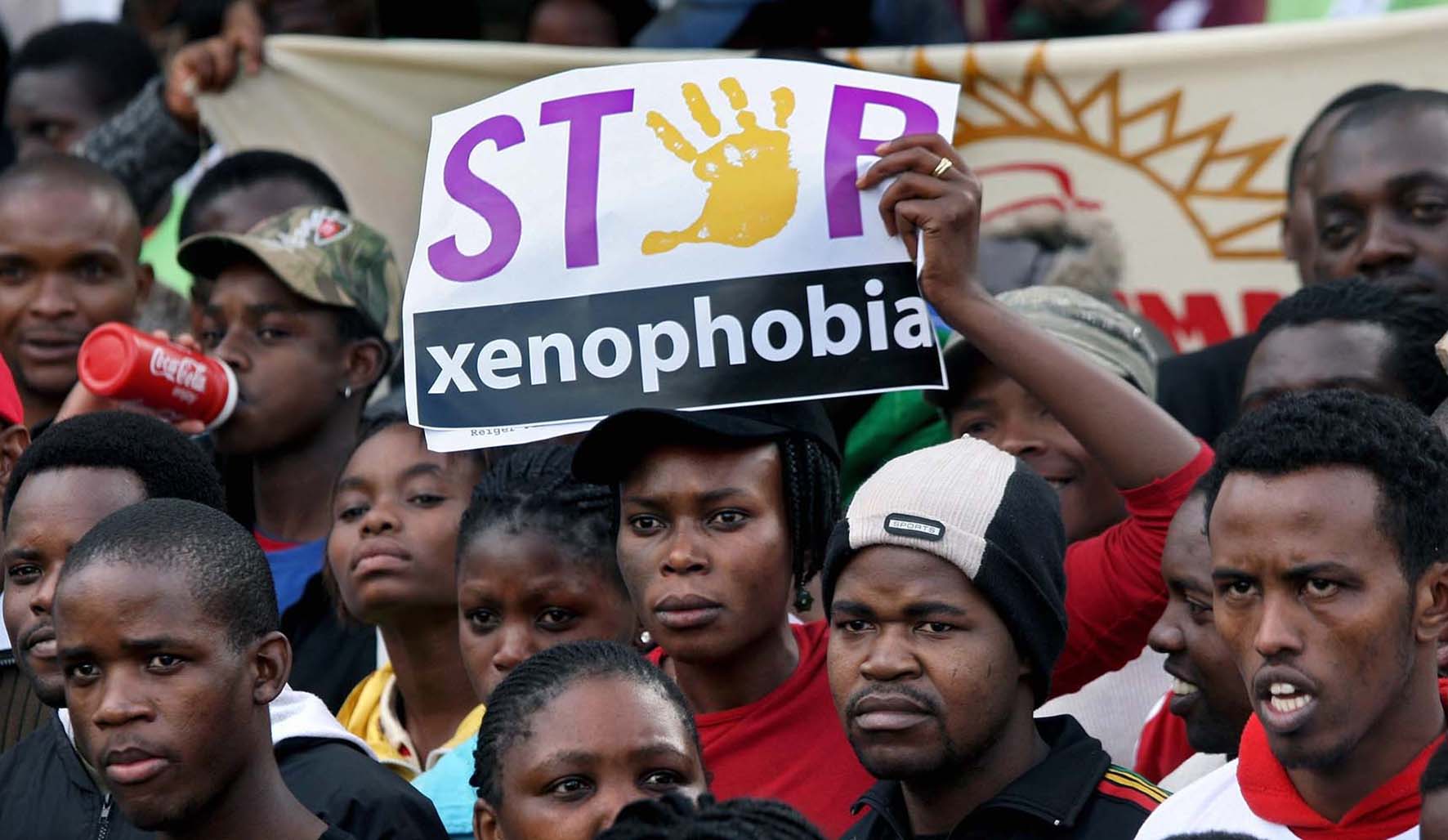
Marchers protest against attacks on the immigrant community in Johannesburg. (Photo: John Moore / Getty Images)
There is another way to manage migration. It is for the ANC to stop propping up and prolonging the lives of “comrade regimes” in Zimbabwe, Mozambique, Swaziland and the Democratic Republic of Congo whose leaders rob their countries blind and murder and intimidate their opponents.
It is to act decisively to mitigate the hunger and unemployment crisis in South Africa and across the region and to improve policing and law and order, as called for by the South African Federation of Trade Unions (Saftu) and many other organisations.
Saftu and civil society’s cost-of-living strike
On Wednesday, 24 August 2022, Saftu, Cosatu and many working-class civil society organisations, including the TAC and Abahlali, are planning to hold a national shutdown.
Read the Daily Maverick’s explainer of the shutdown here.
The shutdown is to protest against the escalating cost-of-living crisis, something that is now sparking strikes and protests from Mozambique to Sierra Leone, and across the world.
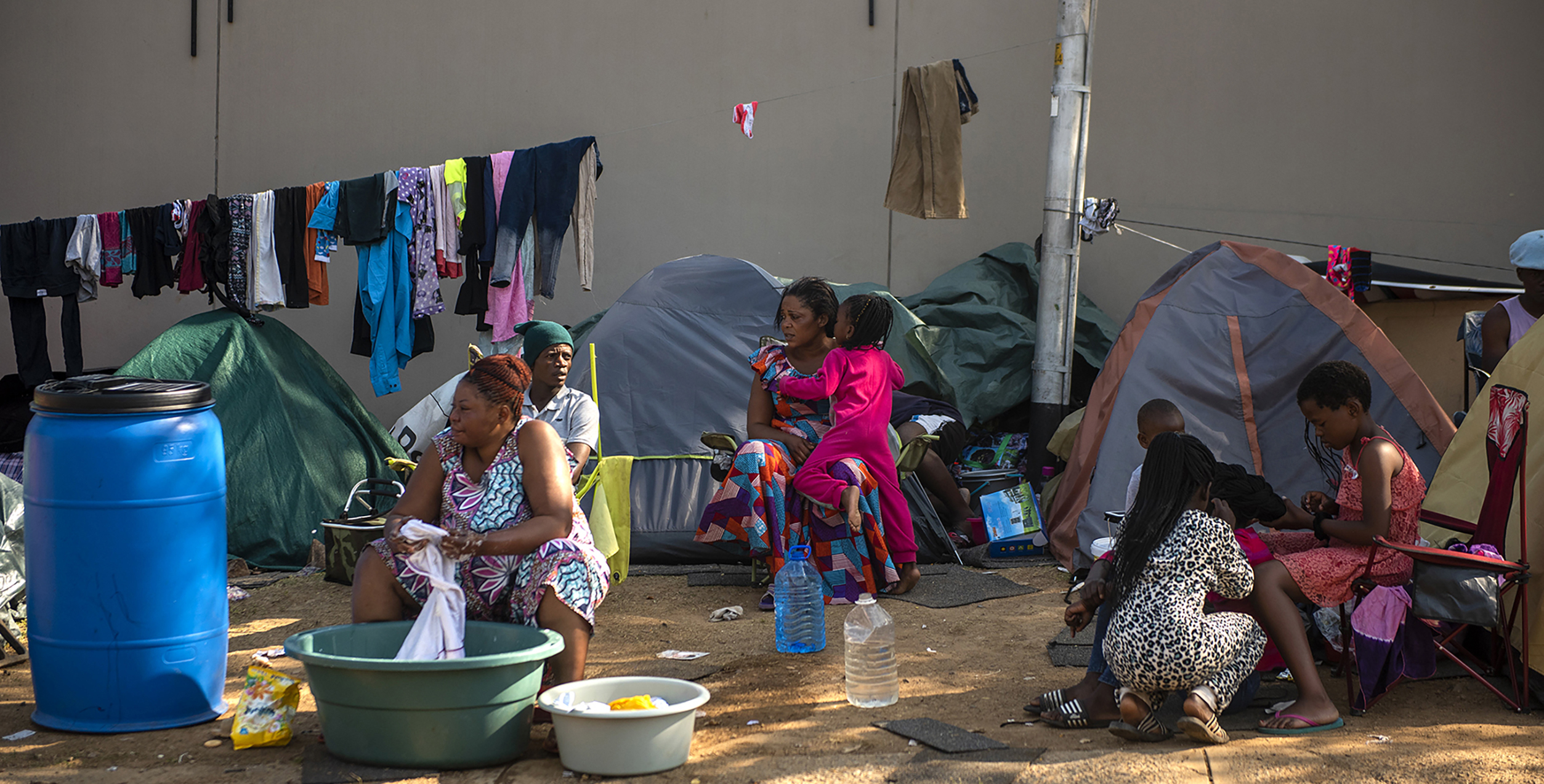
Migrants from several African countries camp outside the offices of the United Nations High Commissioner for Refugees in Pretoria owing to xenophobia. (Photo: Gallo Images / Alet Pretorius)
At a press conference on Monday, Saftu general secretary Zwelinzima Vavi asked: “Do we want to wait for the powder keg to explode or do we act now?”
There is no doubt that South Africa’s social fabric is fraying… fast.
Visit Daily Maverick’s home page for more news, analysis and investigations
Basic food prices keep rising. Read here how little food the R350 Social Relief of Distress grant – on which eight million people depend – can buy. Unemployment is at its highest yet, health services are failing.
And yet South Africa’s rich get richer.
Vavi cited as evidence of the combustibility of South Africa the growing youth suicide rate (suicide is the second-most common cause of death in the 15- to 29-year age group), and the fact that “we cannot even protect girls from rape and violence when they are at school”.
It couldn’t get much worse.
Except it can.
The government’s response is to bury its head in the sand and go ahead with plans for more austerity which will be announced in the October medium-term budget policy statement.
In the face of state failure to protect fundamental rights to dignity, sufficient food and life; its obstinate and unlawful holding on to discredited fiscal policies; and failure to actually stem massive corruption and tax evasion, Saftu and its allies are demanding a R1-trillion stimulus into social spending.
Predictably, organised business is already complaining about the damage to the economy and investment the strike will cause. But the economy is already broken and so this is cold comfort to people shut out of the economy or ruthlessly exploited by foreign investment in mines or tech platforms like Uber.
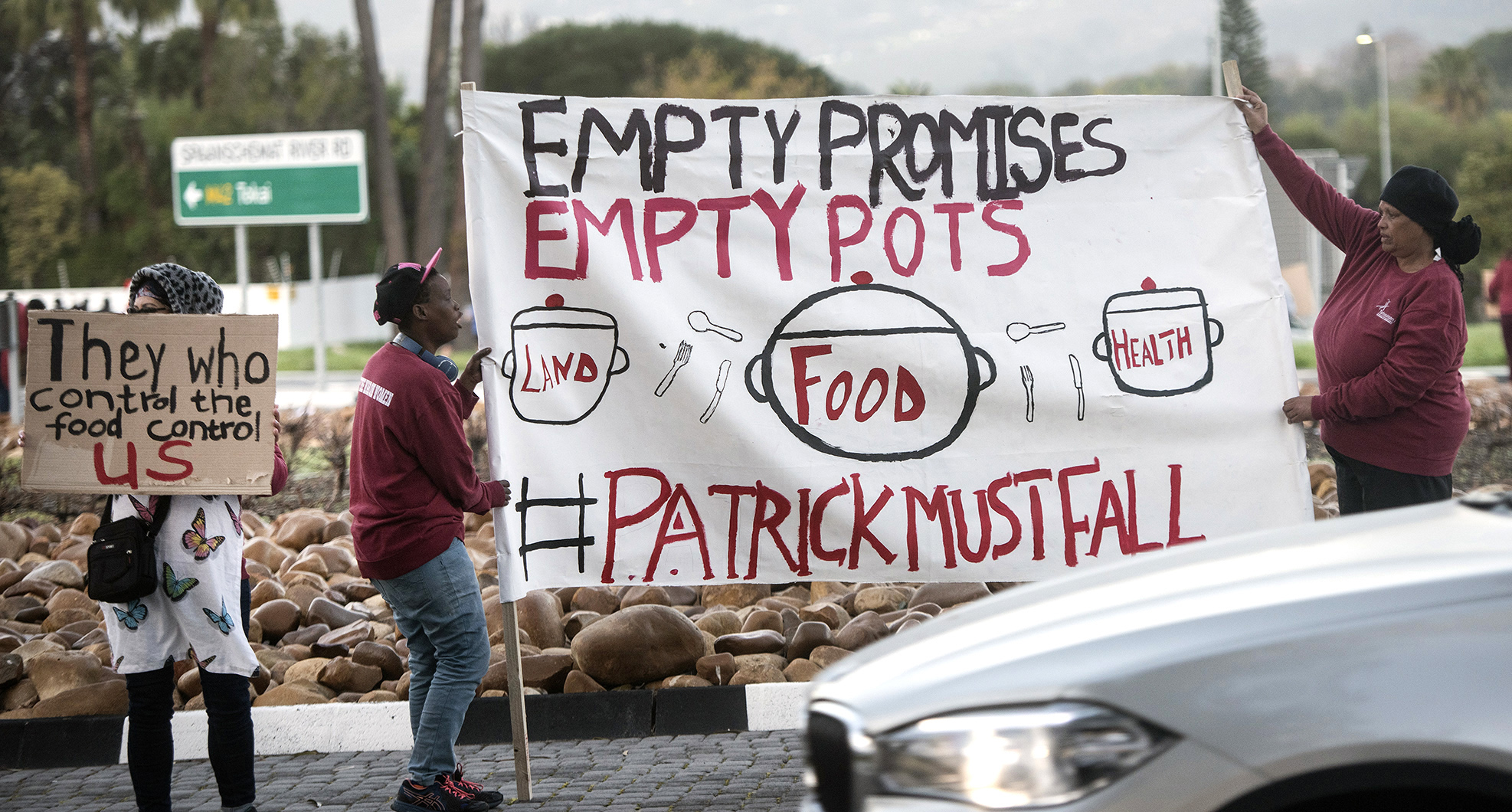
Women picket at Constantia Circle in Cape Town on 8 August 2022 in protest against gender-based violence, hunger, poverty, unemployment and neglect from the government and big businesses. (Photo: Gallo Images / Brenton Geach)
With the tacit agreement of business, organisations like Saftu and civil society are being kept out of negotiating bodies like Nedlac and by-passed in “social compact” and economic recovery negotiations.
So, Saftu has every right to exercise its constitutional right to protest. Further, the duty to act to protect the lives of the poor falls on every person and business in our country. Not just the trade unions.
Vavi says “it’s time to stand up and unite and force a change”. But Saftu has made it very clear that “extremist groups who are diverting attention away from the real crisis by scapegoating black migrant workers” are not welcome.
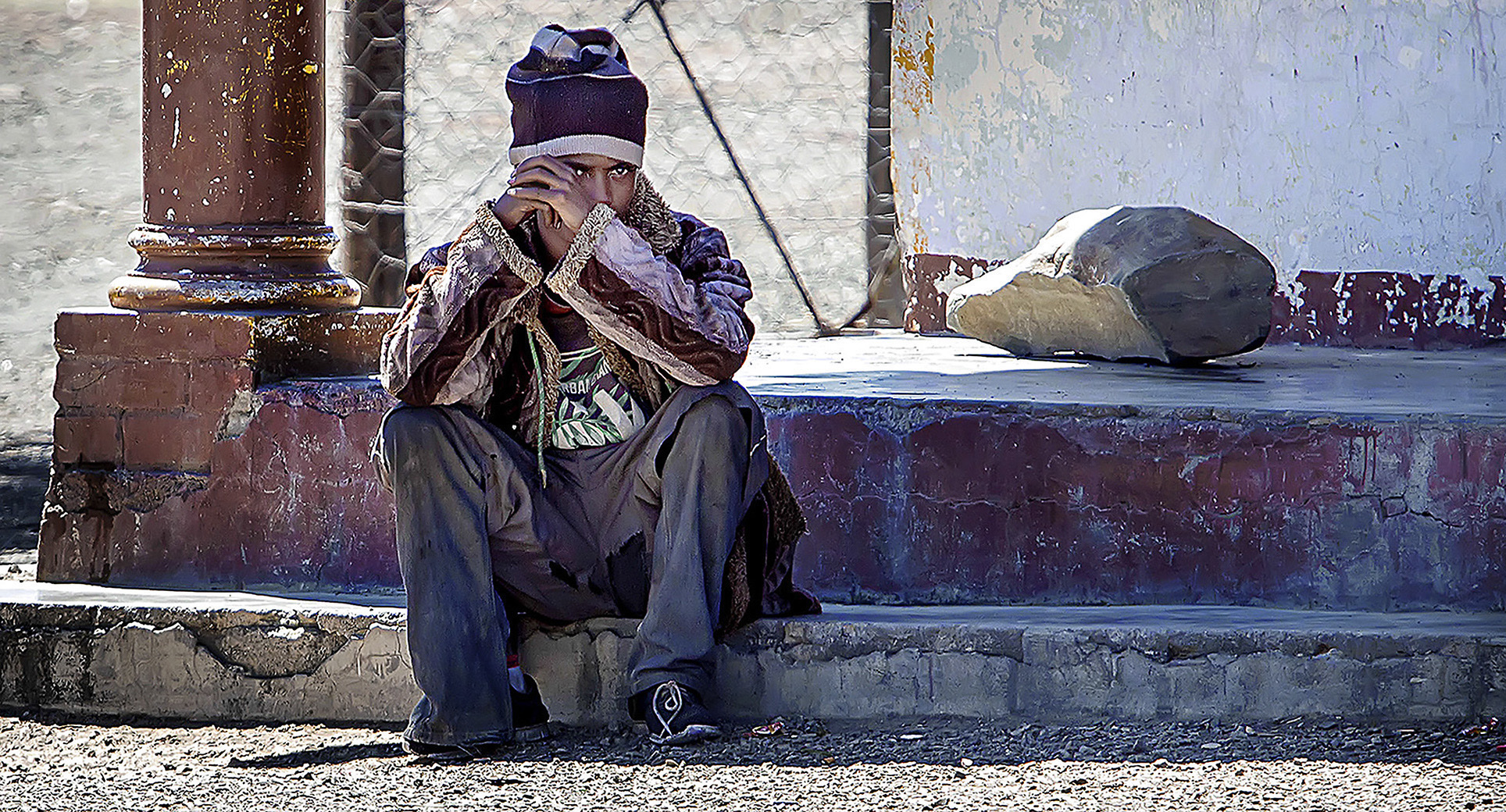
Unemployment and desperation are rife in Klipplaat. The duty to act to protect the lives of the poor falls on every person and business in our country. Not just the trade unions. (Photo: Donna van der Watt)
In response to claims that migrants are causing the crime wave, Vavi asks “who is responsible for law and order, migrant labourers or the government?”
South Africans should be glad the protests are being organised by the trade union movement, which is open about its agenda and demands, rather than xenophobes or the ANC’s criminal RET faction.
Nevertheless, with South Africa teetering on the edge of anarchy, the shutdown is a risky strategy. In the next 48 hours it’s incumbent on the trade unions leaders, and the SAPS, to do everything they can to ensure the protest is not hijacked, does not turn violent or leads to further destruction of infrastructure and life.
But the greatest responsibility lies with the government to take measures to address the social crisis and restore the constitutional promise of a country founded on social justice. DM/MC
Abahlali baseMjondolo has asked for donations to support the families of Mnguni, Ngila and Mabaso. Below are the account details and PayPal link. Please include this reference in your payment if you would like your contribution to go directly to the three affected families: MNGUNI
Acc. holders name: Abahlali baseMjondolo Movement SA.
Bank: First National Bank (FNB); Acc. no: 62786238230
SWIFT CODE: FIRNZAJJ
paypal.me/abahlali




















 Become an Insider
Become an Insider
It all comes down to the economy and jobs; they are inextricably linked – we cannot solve one without the other, and make no mistake, this is not a South African problem, it is an African continent-wide problem.
Africans need to develop confidence in themselves, start businesses and get economies going, because when confidence is shown by Africans themselves, then it is easier for the World to invest. This is what kick-started China, that the Chinese Government, reached out to Chinese business people in the broad Asian diaspora, and asked them to invest, almost guaranteeing success. They invested more and more and other global investors, particularly from the US and Europe followed suit and the miracle that became the rise of China began.
Africa needs to scrap all the political posturing and noise, take fully on board that it is the economy that drives everything and that without a strong, growing, vibrant economy none of the social issues can be overcome, and get the economies of Africa moving. In the 1960’s when independence and freedoms came to much of Africa, many African countries were ricer and more successful than many of their Asian counterparts – that Africa has been left far behind has little or nothing to do with Apartheid and racism and far more to do with African squabbling as to which sector deserves the greatest rewards, that has taken Africa into a spiral race to the bottom.
It simply doesn’t have to be this way.
Our ANC government is a blight on our country and the continent. It’s in fine company of course, but the situation as described should not prevail in a democracy with a constitution like ours. The bill of rights means nothing to the cadres.
If our education system was delivering educated, skilled people, immigrants would not have been such an issue. However, we cannot compete with them – they get the jobs, because they have the skills.
We can create as many jobs as we wish, but if our people have not been educated or understand the basic principles of work ethics, nothing will change. And the poverty, the violence and self destruction will be with us for ever.
The issues we face (poverty, education, health, economy, etc) are so daunting that one wonders who might be up to the task. And also perhaps if the opportunity will be given to such a person, group or party